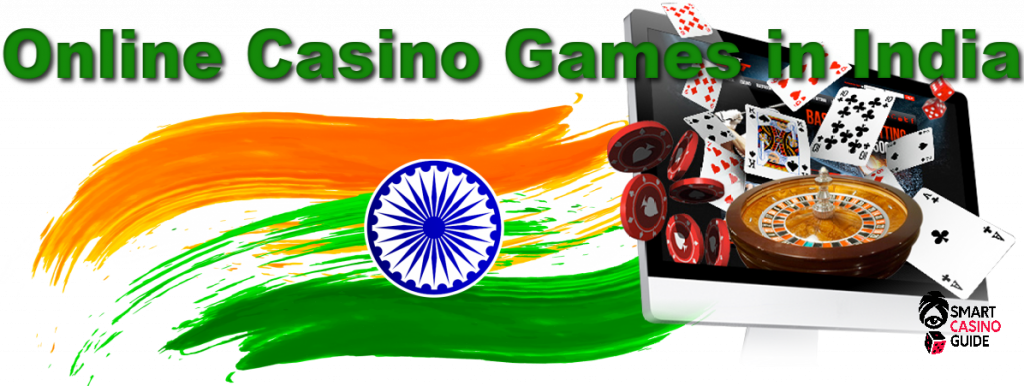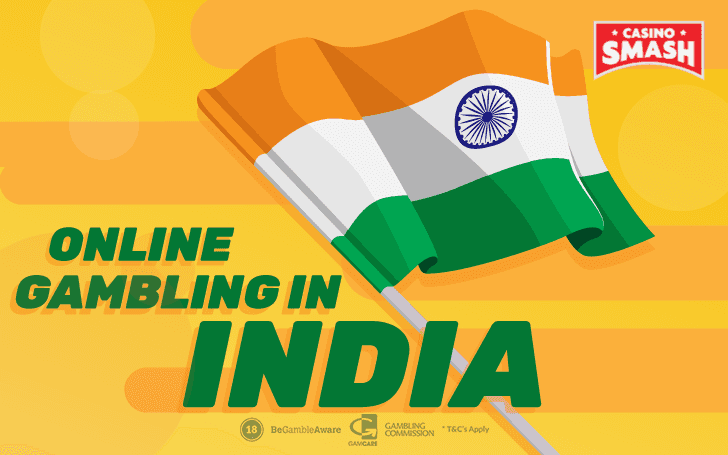Fantasy sports, etc. As on date we have no dedicated online gaming and online gambling laws in India. Similarly, we have no dedicated fantasy sports law in India till now. This is in line with the exiting game laws like online poker, online rummy, online lotteries, etc that are still not governed by any dedicated Indian law. The types of gambling available in India are: casinos. The largest gambling city in India is Panaji with 6 gambling facilities, 94 tables games, 120 gaming, slot, and video poker machines. The largest casino in the entire country of India is Deltin Daman Casino which is located in Daman.
Let me quickly answer the question “Is online gambling in India illegal” and we will go into details about online gambling in India. The answer is it’s a minimal at best low risk ‘grey area’. Nothing you would see any casual bettor getting in trouble for unless fraud was being committed. Despite various laws to try to prohibit it, online gambling is a state wide issue and in India, states such as Sikkim have the power and do allow internet gambling.
As far back as history accounts gambling has existed in India. Whilst there is no way to pinpoint exact dates, the earliest forms of modern dice trace to India, and discoveries of Europe’s early gaming devices have shown they included Indian symbols. It is discussed casually the Ramayana, sets up the great war in the Mahabharata, and is warned against in Rig-Veda X-34-13. The point I’m attempting to illustrate – gambling is as ancient in India as the history of man himself. Despite this fact, the State has gone to great lengths to legally prohibit online gambling in India.
In Recent News
There have recently been issued four (4) letters of intent (LOI) to issue online gambling licenses to entities inside the state of Sikkim. Despite the IT Act which we discuss below we are seeing optimism for the outlooks of online betting in India. Earlier this year Haroon Largat of the ICC (International Cricket Council) pushing for the legalizing of sports betting in our country of India namely because of the match fixing that has occurred. Mr. Largat also believe that be legalizing and regulating the bets, they would be able to more closely monitor illegal bookies whom use the funds to launder for the use of terrorism, drugs, prostitution and overall dis-health of India caused by Cricket Match Fixing.
Information Technology Act/Law for Gambling 2011
This Act was put in place on May of 2011. It was said to be the final curtain to close the doors to online betting in India, which was looking so promising. This was a federal law that said anything taboo or “gambling” was to be blocked at the Internet Provider level. Essentially placing the burden on Internet Service Providers to block thousands to hundreds of thousands of websites, including that of online casinos and betting sites. They forgot one thing, the States have the power. After this law was introduced Sikkim has continued to actively seek out partners for their online gambling licenses. Here is the text of the law from cis-india.org.
Public Gambling Act of 1867
The first laws against gambling in India went into effect on 25 January 1867 in what is known as the Public Gambling Act. This piece of legislation initially applied only to the ten states under British rule, but was amended first in 1897 to include more regions, and since dozens of state ordinances have passed to enforce the law across the nation. Many of these came well after India became a republic in 1950; in fact, to make sure it was clear some states served notice as late as 1976 clarifying the penalties for violating the gambling act.
This important piece of Indian legislation addresses both operators and participants. To catch you up with all modifications, here are some of the items that are covered.
Running a Gambling House is Illegal
This law specifies that the owner, occupier, or anyone having use of the land which gambling occurs can be found in violation; awareness or knowledge of the crime is specifically “not” a requirement for conviction. This was also extended to include suppliers of money to the games as well, basically anyone knowingly loaning someone money for the purpose of them running a gambling house can be found guilty as well.
Visiting a Gambling House is Illegal
Online Casino Legal In India
This laws states that being found in any place where playing cards, dice, counters, money or other instruments of gaming are found is a crime. It also states that one does “not” need to be found having actually gambled to be convicted.
Police Have Authority to Enter and Search
This law states that police are authorized to enter and search any premise he has reason to believe gambling occurs. This can be done at anytime including use of force if necessary. The police are also given the right to take in to custody all occupants of the house, search the entire premises and to seize possession of all instruments used for gambling.
Guilty Until Proven Innocent
This law states that when a deck of cards, dice, gambling tables, or other gambling instruments are discovered it is assumed they are for the purpose of gambling until such time the contrary is made to appear likely. Even when no play was found, the presence of the instruments alone can be used to convict.
The Laws Are Confusing and Outdated
We’re not going to go as far as other websites do and say gambling is legal in India. However, for the most part the penalties are rather small for the player, a small fine of 100 to 500. For the operator sometimes prison can be involved for each count, so it gets much more serious for them. The area of confusion though is all sorts of new laws have been passed in various states making certain forms of gambling legal. For example in Goa there are legal casinos, most operating on casino boats, in Sikkim there is a large legal lottery Playwin that also operates online. Horse Racing is legal in most Indian states.
Skill Games
Outside the confusion of some forms of gambling are illegal and other are legal, there is the issue of skill versus chance. In 1957 the Supreme Court ruled that competitions that involve mostly skill are business activities as opposed to gambling and are protected under Article 19(1)(g) of the Constitution of India. In 1968 the Supreme Court ruled Rummy was a game of skill. Furthermore in 1996 that same court stated “Golf, chess and even Rummy are considered to be games of skill.” They went on to explain while most games involve both skill and chance, the determining factor is which of the two (skill or chance) predominates over the other.
This is where grey area starts. The game of poker has been ruled skill in some countries and ruled chance in others. Most would assume based on India’s previous rulings, poker competitions are in fact legal in India. However many lawyers and authorities disagree. With no clear ruling on poker specifically by an Indian court it is a grey area many operators have yet to gamble on.
The Lottery
The lottery is a perfect example of how Indian laws are often not enforced. In 1998, the Central Lotteries (Regulation) Act, gave authority of state government to organize lotteries; however, no more than one draw per week was allowed. Upon passing this law soon later terminals popped up across the country where lotteries were drawn every 15 minutes. Despite a violation, this has never been enforced and these lotteries have operated without much fear.
Today, lottery is specifically illegal in 17 Indian states, and legal in the remaining 12. This again hasn’t done much to curve it in the illegal states. Eventually Ranjana Sinha in charge of Maharashtra State Lottery Department, claiming when the law is ignored it is hard to enforce, asked the Central Government to “put an end to this or draft a policy accordingly”. This was never followed up, so what we have is a situation where a law on the books is mostly ignored and unenforced.
As Evident Laws are Confusing
As you can see the law is quite confusing and a lot of grey area exists. What we do know however is games such as roulette, casino war, katti and the likes which are purely based on chance are illegal under Indian law. However, when those games are played on the internet in one’s own home… when might authorities ever get involved?
Operating a Gambling Site in India

Most law experts assume that operating a gambling website is the same as operating a gambling house. The only state we know that specifies this is the case is Maharashtra. The penalties are one month in prison for a first offense, three months in prison for a second offense, and for all subsequent offenses the “minimum” punishment is six months imprisonment. In other states the law is not so clear.
Sikkim Licensed Gambling Sites
There has been a lot of interest in recent months about the state of Sikkim offering gambling licenses which will be valid across India. The idea here is that because the laws of most states focus only on the operators, not the players, if gambling sites could operate legally in one state, they’d attract players from all states. The problems with this theory is that if the laws are supposed to be governed by state, per each state, then the IT ACT wouldn’t be enforced as people from other states would be playing at legal sites in one state, but possibly illegal in theirs.

Online Casino License In India
Playing on European Sites
There are many gambling website legal in the European Union which offer safe and secure regulated games for poker, casino, bingo and sports betting, where you can be certain in times you win, you’ll be paid. Most of these sites can be accessed by anyone with an internet connection.
So the question here becomes, how does India regulate or punish a website which have long histories in the United Kingdom, hold European gambling license, and operate totally legally from where their servers, office and support departments are located.
Royal Panda and Betway even accept rupee deposits and withdrawals, however they are still not “operating in” India. They take the position that they are legal where they themselves operate, laws change often, they can’t be expect to know them all; the burden falls on the client to know laws applicable to them as Betway is not “operating in” India. The fact that they offer rupee deposit and withdrawals is just a matter of convenience to their potential clients.
We’re no gambling law experts, but to our knowledge Indian authorities have shown no signs that the problem of Indians gambling outside India is widespread enough for them to even bother to address the issue. The risks for players certainly appear minor. The police would need to enter your home, find the software installed and all this would be for jail time not exceeding one month or a small Rs. 100 fine. This is our understanding of course, if you’re considering gambling online it will be best to check with your own attorney for advice.